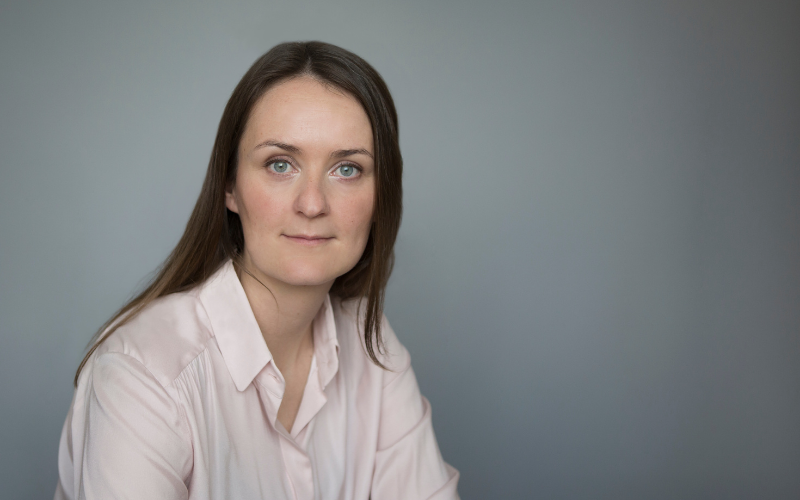You are here
- Home
- Petra Vacková: Research with an educational justice drive
Petra Vacková: Research with an educational justice drive

Petra Vacková is an award-winning postgraduate research student finishing aPhD within the School of Education, Childhood, Youth and Sport (ECYS) in the Faculty of Wellbeing, Education and Language Studies (WELS). Her PhD investigates new directions towards educational justice in and around the arts in formal and informal settings working with young learners.
We caught up with Petra to find out more about her research, which has been recognised by her supervisors and peers with two academic awards in the past year.
Focusing on processes of social inclusion and exclusion around artmaking activities in the Early Years, Petra’s research has an educational justice drive and uses ground-breaking 360-degree video to overcome problems of ‘privileged viewpoints’, while arguing for a relational and response-able approach to just education.
Commenting on her choice of subject matter, Petra said:
I've always wanted to understand how social inclusion and exclusion are enacted in our schools. I'm from the Czech Republic where there’s a large proportion of children, usually of Roma background, that are excluded from mainstream education. They’re often placed into ‘Special Schools’ that have a more limited curriculum or receive sub-standard education in segregated schools and excluded localities. This issue is still prominent today, not only where I grew up in the Czech Republic but across Europe.
Part of the reason for choosing to do my PhD in this area was to try and understand the processes of social inclusion and exclusion, how they are enacted, made, remade, and most importantly what else, beyond inclusion and exclusion, is there that would help us expand the current narrow approaches to educational justice. My background is as a museum educator and artist; there tends to be a simplistic notion that the arts are a good tool for facilitating social inclusion, but I have always questioned this, as the processes of social exclusion are complex and multi-dimensional.
Petra moved back to the Czech Republic for a year during the data gathering stages of her PhD, taking her family, including her young son, with her. Looking back on this time she said:
Having a young child and uprooting them was definitely a challenge! We travelled back to my home country as I was doing fieldwork for my research close to where I grew up. I tell other PhD students: “if you're a parent it will be a challenging experience, but if you can hold on to your support network it's definitely doable”.
Reflecting on her methods and motivation for her research, Petra said:
Though I am a local, as I am from a nearby town, I was still an outsider in the community where I conducted my study. As an excluded community, it is not only difficult for the residents to get out but for others to get in, so it was important to me to build meaningful and ethical relationships.
I spent a lot of time going into the local nursery, family centre and a clubhouse during my fieldwork; places where very young children encounter artmaking activities set up for the purpose of teaching children preschool skills and thus including them in mainstream education. The artmaking activities draw the children from the streets and start to teach them how to handle various tools, follow a classroom routine, and interact with adults in a learning environment. I wanted to look at what children, practitioners, parents, as well as objects in these settings, do together and whether their interactions can help us reorient our thinking from normative to more expanded understandings of educational justice in and around artmaking.
The children and adults that I worked with in the Czech Republic are truly inspirational to me. These resilient, kind, and very strong people shaped this study, shared their ideas and co-constructed the thinking within findings presented in my thesis. Children, adults, and their material worlds challenged me and my preconceptions and pushed me to open up to new ways of attending to the intersection of arts, education, and educational justice.
In 2020, Petra’s research was recognised by her supervisors and peers with two awards, the WELS Postgraduate Student Research Award for Outstanding Research1 and the AOUG Vice Chancellor Lord Perry Walton Award for Social Science2. Commenting on the awards, Petra said:
Receiving the recognition of a nomination from my supervisors is a great feeling, knowing that someone took the time to go through that process. The gesture of them asking if it was ok to nominate me was invaluable, especially during the pandemic when it’s harder to know if you’re on track. Receiving the awards was a real honour and gave me the extra motivation to make sure I finish strong!
Looking to the future, Petra hopes her research will have real impact on how social inclusion and exclusion policies and processes within education are written and constructed. She said:
Social Inclusion is more complex than is often understood, and I hope that my research can improve on the sometimes simplistic approaches to interactions in learning settings, and can contribute to developing a more just education system. I want to ensure that those most affected by educational policies are included in their development and that we are working alongside them to construct appropriate solutions, rather than having Social Inclusion initiatives forced upon learning communities - whether that is around the arts or other activities.
Find out more about Petra and her research
Follow Petra on Twitter - @petra_vackova
---
1This award considers doctoral research that demonstrates a particularly outstanding contribution to the research environment of the OU and to the field of research.
2Association of Open University Graduates (AOUG) Foundation for Education Research Awards are given annually to research students who are nominated by their Dean of Faculty or Head of Research Centre.
Are you already an OU student?
Request your prospectus
Explore our qualifications and courses by requesting one of our prospectuses today.
Request prospectus